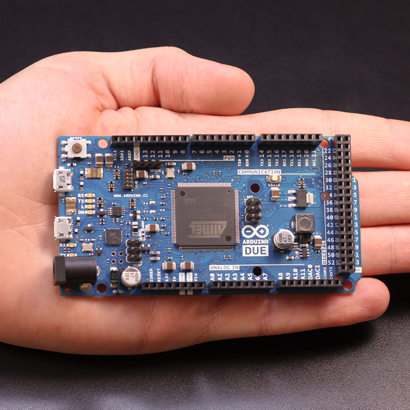 |
| www.arduino.cc |
Using Arduino microcontrollers we bridge the gap between hardware and software and get students comfortable with the idea of building circuits as well as controlling it with code. This year I've also gotten a Raspberry Pi up and running as well as building dozens of desktops. A resurgent maker culture has made electronics much more accessible and customizable; it's a good time to be teaching computers.
 |
| Maker Culture |
The real fear in using technology is that many users don't have the faintest idea how things work. When it breaks there isn't a frame of reference of where to begin, fixing anything seems impossible. After breaking apart their first digital clock, or radio, or electronic game, students begin to recognize the components because they're already familiar with the bits and pieces having used them to assemble a dozen Arduino projects already. With the mystery gone, they begin to grasp the power their minds and hands have.
I'm re-reading Matthew Crawford's Shopclass as Soulcraft. It's such a complex read, with so many ideas packed into each page, a second run through will do me good. If you're an educator, and you can take some well intended criticism, reading the first couple of chapters will challenge many of the assumptions we wrongly found current educational theory on. I imagine most educators won't find the criticism comfortable, no matter how well intentioned.
I'm about to get my first motorcycle and I've found myself casting about, trying to figure out who I can get to maintain it for me. A chapter in and this ex-mechanic is getting his hands on a shop manual and doing it himself. One of the reasons I want to begin riding is to develop a closer relationship with the machinery I use. The plastic covered, warrantied cars I drive don't do that. The nakedness of a motorcycle begs for it; I'm looking forward to that quiet, focused mind driving busy hands.
There is something inherently valuable in being able to fix what you use. I've never had to argue for the value of what we do in computer studies, the learning has inherent worth, is immediately useful, and applicable in a surprisingly wide range of situations. From the insides of an operating system to the flow of electrons around a circuit, these students develop a familiarity and comfort level with something that most people are more than happy to use in blissful ignorance (until it breaks). The tactile nature of the work also draws in even the most reticent. Working with your hands, making something real work through trial and error, offers an experience missing from much of academia. Crawford's philosophical attack on the globalized knowledge economy happens every day in my classroom.
Many of these students will move on to other interests in other fields, but none of them will ever again be at the mercy of their ignorance while working with a computer. I'll have to paste rubrics and marks over all this to make it credible to the establishment, but the moment a student who has been whacking his head against his own bad wiring for half an hour realizes what he's done and fixes it himself, he has developed a tiny bit of independence, and perhaps realized that paying attention is a powerful ally. Learning shouldn't be frustration free, if it were, it wouldn't mean anything. With minds and hands engaged in a battle with realistic demands, the rewards are hard to quantify in a mid-term mark.
